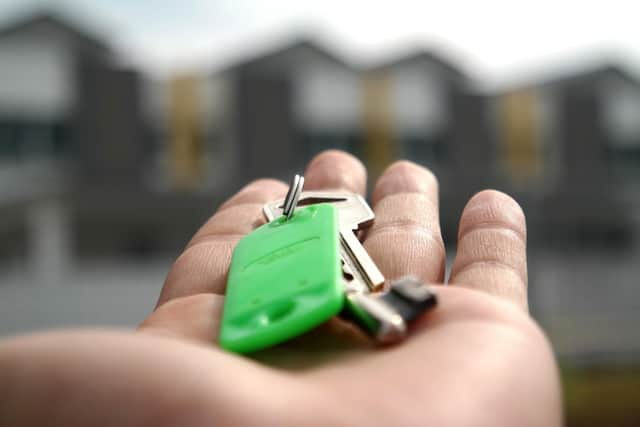These nine reasons are why your property transaction might fall through
and live on Freeview channel 276
However, with the market booming in recent months, it’s estimated that fall-throughs have been as common as one in four sales.
The home buying process is often long and complex; there are plenty of opportunities for a sale to fall through and many contributing factors, but some are more common than others, and arming yourself with a little knowledge could help to prevent it happening to you.
Advertisement
Hide AdAdvertisement
Hide AdProperty purchasing specialist, HBB Solutions, has looked at the most common contributing factors that lead to a property sale falling through.


Conveyancing delays
The conveyancing process - in other words, the process of completing all of the legal processes required when buying a property - takes a notoriously long time in the UK.
There are scores of technology entrepreneurs out there trying to find a way to speed it up, but so far to little avail.
In theory, it should take about three months to complete a purchase, but when the market is busy, as it has been since the pandemic, it’s not uncommon for the process to take six or even twelve months.
Advertisement
Hide AdAdvertisement
Hide Ad

This leaves plenty of time for any range of factors to scupper the sale before it completes.
Broken chains
Chains are everyone’s biggest enemy in the housing market.
A chain is created when multiple house sales are dependent on each other’s success.
House 1 needs to be sold so that the owner can afford to buy House 2, and the current owner of House 2 needs the sale to be completed in order to be able to buy House 3, and so a chain is created.
If one sale falls through, the chain is broken and can cause a ripple effect whereby all of the other sales connected to the chain also fall through.
Surveys
Advertisement
Hide AdAdvertisement
Hide AdMany buyers will place an offer on a home before completing all of the vital surveys and checks that inform them of the true condition of the property.
When they do get around to commissioning the surveys and the results come back showing the property is in a worse condition than they thought, the buyer will commonly retreat from the purchase.
Negotiations breakdown
As a buyer completes their checks and surveys on a property, it’s common for them to start negotiating on the purchase price. If, for example, a survey has found significant damp in the property, the buyer will demand the price be lowered to account for the additional money they’ll have to spend to fix the damp. The negotiation process that follows can often lead to a complete breakdown of the sale.
Finance/mortgage issues
Mortgage problems are one of the most common reasons for a fall-through. It might be that a buyer submitted an offer before confirming they could get a mortgage, or it could be that the buyer’s mortgage lender values the property at a lower figure than the seller demands (down valuation) thus leaving the buyer short on funds. Furthermore, a buyer’s life circumstances might change, affecting how much money the mortgage provider is willing to lend.
Advertisement
Hide AdAdvertisement
Hide AdBuyers are encouraged to ensure financial requirements can be met before submitting any offers. Sellers are advised to communicate clearly with any potential buyers and gain reassurance that they can honour the purchase agreement.
Gazumping
Gazumping describes those occasions when a hopeful buyer has their